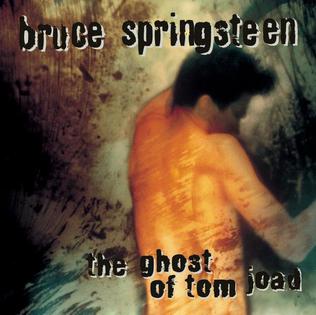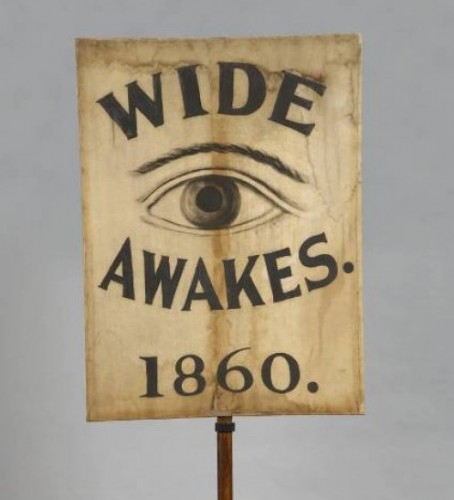The baseball regular season is winding down to an end, and today my team, the New York Mets, clinched a playoff spot despite an imposing number of injuries. On this cool, wet afternoon with damp, newly fallen leaves on the ground, I feel a million miles away from the April thaw and spring breeze. The baseball season is a long one, and with 162 games, it can feel like a journey of sorts. You remember the good times and bad, certain random games out of the 162 sticking in your mind. Right now I am thinking back at the five Met games I was able to attend, and how they tell a story of this improbable season.
April 30, 2016
Mets 6 - Giants 5
Mets record: 15-7
Every year my friend Jim gets a bunch of people to together for Metsgate, which involves intense tailgating in the furthest, least policed corner of the parking lot. I brought a small, behind the liquor store bottle of Maker's Mark with me on the Long Island Railroad wrapped up in the Saturday New York Times. This year, to save money, our group of tickets were in the top rows behind home plate. This was a sign of the Mets' resurgence the season before, which meant that they were actually a hot ticket again for the first time in years. The April winds blew hard that day, and I was freezing my butt off, despite the warmth of the bourbon in my blood. Going to games in April is a real roll of the dice. Jacob deGrom gave up three runs, but none of them were earned. Youngster Michael Conforto was hitting his stroke, and knocked in three runs in that game with three hits, including a homer. To avoid the wind we went down to the area behind the bullpen at the end of the game, and watched Jeurys Familia warm up, throwing hard with a satisfying *pow* sound every time his pitches hit the catcher's glove. The Mets hit 15-7 and I thought that they were on their way to a dominant season. Ah, the hubris of April!
June 21, 2016
Mets 2 - Royals 1
Mets record: 37-32
April's chill had more than faded by this time. It was a bright sunny day, and my last day of school for the year. Ending that blessed day at the ballpark was like a dream come true. I met my friend Guy at the stadium, and we got there so early that we had to wait in line for half an hour before they would let us in. He is a a great baseball companion who likes being at the park early, and is good at striking up interesting conversations with other fans. We went straight to the outfield bleachers for batting practice, and Guy even brought his glove. I really do love getting to the park early, drinking it in and attuning myself to the subtle rhythms of baseball. We actually got about seven feet from catching a ball hit in the seats during BP, but we weren't big enough losers to muscle out the kids scrambling for it. We had great seats for the game, on the first base line, although this meant the sun blasting our faces for the first three innings. This ended up being one of the most memorable games I'd ever been to. Bartolo Colon was pitching, and the first batter hit a line drive right off his wrist, driving Colon from the game. It was up to the Mets' bullpen to win an entire game without any time to warm up, and they actually did it. The fact that they managed to do it against the team that beat the Mets in the World Series made it all the more sweet. The Mets were faltering at this point in the season, with Duda on the DL and Conforto hitting a big slump. The guts they showed in this game made me think that they still had a chance.
July 1, 2016
Mets 10 - Cubs 2
Mets record: 42-37
I went to this game with my Dad, visiting from Nebraska, and my friend Matt, visiting from Georgia to root on his beloved Cubs. The Mets had been maintaining a holding pattern, a winning but not dominant theme. We almost didn't go, since the weather forecast looked pretty grim. There was a rain delay, but that afforded the perfect opportunity to get some spicy sausage sandwiches and beers in the concourse. That experience also showed the wisdom of Citi Field's architects, who designed concourses wide enough to hold fans during a rain delay without becoming as crowded as rush hour on the subway. As always, it was great to go to a game with my father. He has not stayed up on the current players, but has an amazing eye for the game itself. He notices the defensive shifts and predicts what kind of pitch the pitcher will throw next, and going to a game with him always reminds me that statistical analysis is only a one part of how to understand baseball. My father marveled at Jacob deGrom's dominating pitches, especially a high heater that tempted the opposing to swing and miss many times. The Mets looked really sharp, and they ended up taking all four games in this series. I actually felt bad for Matt, since he had made such a long trip to see his team in what is supposed to be a year of destiny for the Cubs. Little did I know that after sweeping the Cubs the Mets would began a long, slow decline, and the Cubs would prove themselves to be the most dominant team in the National League. Such are the twists and turns of the wide river that is a baseball season.
August 13, 2016
Mets 3 - Padres 2
Mets record: 58-58
When this game started, the Mets had a losing record. Guy and I managed to get tickets dirt cheap for a Saturday night game due to the Mets' decline. We went on what must've been the hottest day of the year, the sun just blasting down and waves of heat rising from the concrete of the parking lot as we each slammed an Old Milwaukee tallboy, more to quench our thirst than to get a buzz on. It was the kind of heat so intense that my usually profuse sweating no longer caused me embarrassment because everyone there was drenched. DeGrom was on the hill again, and yet again he pitched a gem, not giving up a hit until the fifth inning. However, the Mets' anemic offense could not give him the necessary run support. The Padres were down 2-1 when the ninth inning began, with the Mets' imposing closer Jeurys Familia there to close it out. After putting down the first two batters, he gave up a big blast of a home run that felt like a massive punch to the gut. It was a metaphor for a season when the Mets showed promise, and then managed to screw things up. I might've left the game in disgust at that point, but Guy and I attended this game in large part because Styx (remember them?) was giving a free concert afterward. Finally, in the eleventh inning, the Mets put together a string of hits, and won the game on that most anticlimactic of plays, a fielder's choice. Perhaps this game was another metaphor, the Mets as a team with its back against the wall that managed to scratch and fight its way forward. Gabriel Ynoa, just called up from the minors, managed to get the win in relief, just one of many players who would come out of nowhere to bolster the Mets as they contended with injury. We left the stadium feeling just a little bit of hope that the Mets could turn things around.
September 25, 2016
Mets 17 - Phillies 0
Mets record: 83-73
This game was my birthday present, and I attended it with my wife and my two girls, who were at their first Mets game. It was also the last home game of the season, and I'd always wanted to go to a last home game, since they can be such wistful moments. When we got the tickets a month before I assumed that the Mets would be out of contention at this point. It was right then that the Mets started catching fire, hitting the ball and scoring runs in torrents after the drought of the summer. Their starting staff was decimated worse than a regiment of North Caroliners at the bloody angle at Gettysburg. Harvey, deGrom, and Matz all went down, and Wheeler was unable to come back. The pitchers they called up from the minors, like Seth Lugo and Robert Gsellman (who started this game) somehow excelled. It reminded me of the third part of the Lord of the Rings, when the dead kings rise to joint the battle and win the day for the heroes. The weather at this game was damn near perfect, sunny, a little breezy, and exactly what you want out of a September afternoon. I also had the good luck to find out that an old friend from college was in town for business and attending the game, and so we got to have a beer and catch up on the concourse while my daughters dashed around our feet. I took it as a sign that this was not just going to be an ordinary baseball game. The Mets themselves seemed hellbent on giving their home fans a great sendoff in a game that was the team's biggest blowout of the season. We left in the eighth inning to get in line behind the stadium for the Sunday special promotion where kids get to run the bases after the game. It took forever, because the Mets tacked on six runs that inning. Running the bases was a special treat, and not just for the girls. We stood out on the warning track, waiting for our turn, and I looked out giddily at the lush green field where so many of my hopes and wishes had been directed through the long, long season. I felt a little silly for investing so much in a boys' game played by grown men, but on the way home, when my daughters said they wanted to go back to the ballpark again, I felt so happy that I can barely describe it.
The giveaway that last home game was a magnetic 2017 schedule. The cycles repeat. Winter will come, but soon spring, and then baseball again, and with any luck, more trips with my family to the ballpark.








